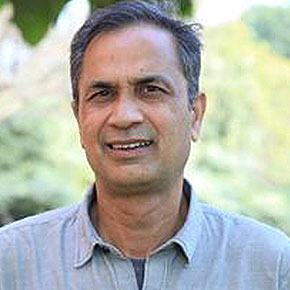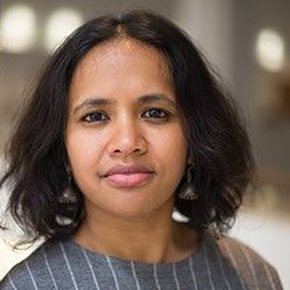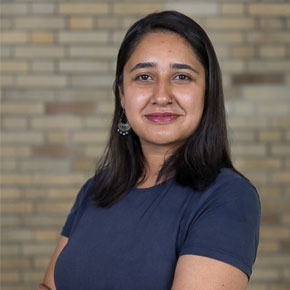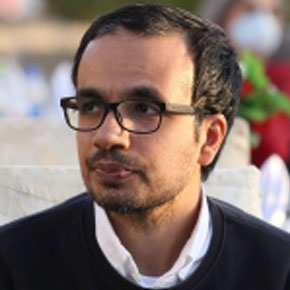The Lens of ‘Labour’ in the Context of Pakistan
This panel aims to bring together research in the field of ‘labour history’ and working-class’ politics for the regions that constitute Pakistan. We are interested in, among other things, exploring the creation of ‘labour’ as a political and legal category, its continual subdivision-analytical and social, its forms of mobilization and organization, significant changes in labour processes and popular representations of working-class struggles. Our focus on ‘organised’ labour is deliberate and in the interests of a defined agenda. We do not endorse the broader project to delegitimize most of the working peoples who work under ‘informal’ arrangements but at the same time acknowledge the value in not merging these domains analytically. Some of the questions we are interested in including how did the colonial and post-colonial State define and demarcate the legal and political domain of ‘labour’? Connected to this, what were the capitalist and imperial imperatives central to determining the parameters of labour policy? How did the overarching division of the ‘formal’ and ‘informal’ sectors of the economy-especially insofar as it pertains to ‘labour’-initially emerge and how has it been reinforced or challenged subsequently? How have specific industries ‘managed ’labour’ historically and exploited it through and in relation to the other factors of production? What can the histories of the workers’ organisations and their forms of protest tell us about the shifting horizons and premises of workers’ politics? How have academic and literary forms-for elite as well as popular consumption-represented working-class identity and the workers’ consciousness and bodies? What is the nature of the archives of ‘labour’ within Pakistan and what do they reveal or conceal about working lives?
Panelists
 Dr. Muhammad Azeem
Associate Profeesor, Shaikh Ahmad Hassan School of Law, LUMS
Dr. Azeem is a legal scholar specializing in Pakistani judicial and constitutional history, state theory, labour-based socio-legal research, and international law from a third-world perspective. He places his research in the broader law and development paradigm, looking at structural questions specific to postcolonial societies from marginalized points of view. Dr. Azeem holds an LLB from the University of the Punjab, and an LLM and PhD in Law from Osgoode Hall Law School at York University. His PhD dissertation, which examined the history and development of the liberal legal project in Pakistan, was published by Springer in 2017 as "Law, State, and Inequality in Pakistan."
Dr. Muhammad Azeem
Associate Profeesor, Shaikh Ahmad Hassan School of Law, LUMS
Dr. Azeem is a legal scholar specializing in Pakistani judicial and constitutional history, state theory, labour-based socio-legal research, and international law from a third-world perspective. He places his research in the broader law and development paradigm, looking at structural questions specific to postcolonial societies from marginalized points of view. Dr. Azeem holds an LLB from the University of the Punjab, and an LLM and PhD in Law from Osgoode Hall Law School at York University. His PhD dissertation, which examined the history and development of the liberal legal project in Pakistan, was published by Springer in 2017 as "Law, State, and Inequality in Pakistan."
Dr. Azeem's latest research projects involve labour codes of Global Value Chains, the China-Pakistan Economic Corridor, and judicial activism in Pakistan. His work has appeared in reputable peer-reviewed journals like Third Word Quarterly, Law and Development Review, Comparative Labor Law and Policy Journal, and Oregon Review of International Law. While pursuing his academic work, Azeem continues to be involved in labour and working-class issues. He is also an active member of the Progressive Writers Association, Lahore, and writes poetry and criticism in English, Urdu, and Punjabi.
 Dr. Layli Uddin
Lecturer in Politics & International Relations of South Asia
Layli joined QMUL as a Lecturer in Politics and International Relations of South Asia in September 2021. She is a political and social historian of modern South Asia, bringing together interdisciplinary questions on religion, class, and mass politics. Her research reconstructs subaltern political thought and movements in the context of decolonisation, state-formation, and the Cold War. Her broader interests are in liberation theologies and subaltern geopolitics in the Global South.
Dr. Layli Uddin
Lecturer in Politics & International Relations of South Asia
Layli joined QMUL as a Lecturer in Politics and International Relations of South Asia in September 2021. She is a political and social historian of modern South Asia, bringing together interdisciplinary questions on religion, class, and mass politics. Her research reconstructs subaltern political thought and movements in the context of decolonisation, state-formation, and the Cold War. Her broader interests are in liberation theologies and subaltern geopolitics in the Global South.
Layli completed her PhD in History at Royal Holloway, University of London, in 2016. Her dissertation explored the political mobilisation of subaltern classes in the making and unmaking of Pakistan from the 1930s up to 1971. She is currently working on her first book based on the PhD, Land of Eternal Eid: Making and Unmaking Pakistan, 1930s-1971. She is on the advisory board of Jamhoor, a critical left media organisation; Bangladesh on Record, a digital archive project; Lokayoto Bidyaloy, a campaign and advocacy group in Bangladesh, and Oitij-Jo, a local women-led Bangladeshi cultural and creative arts organisation in East London.
 Anusheh Bakht Aziz
Ph.D. Scholar at University of Göttingen
Anusheh Bakht Aziz
Ph.D. Scholar at University of Göttingen
Anusheh Bakht Aziz is an early-stage doctoral student at the Centre of Modern Indian Studies, University of Goettingen. Her Ph.D. project investigates the large-scale factory employment of women during textile industrialization globally. The study is preliminarily entitled “The “Mill Girl” Reappears: Factory Regimes of Young Unmarried Women in the Global Textile and Apparel Industry”. She completed her M.A in Modern Indian Studies in 2023 from the same institution. Prior to this, she completed her Bachelors (Hons) in Social Sciences from Lahore School of Economics in 2019.
 Dr. Ahmad Azhar
Assistant Professor, Department of Social Sciences and Liberal Arts, IBA
Dr. Ahmad Azhar
Assistant Professor, Department of Social Sciences and Liberal Arts, IBA
Dr. Ahmad Azhar is an Assistant Professor at IBA. Dr. Azhar completed his Ph.D. in Medieval & Modern History from the University of Gottingen, Germany, and his MA in History from the School of Oriental & African Studies, UK. Dr. Azhar has authored a book on labour history titled, Revolution in Reform: Trade-unionism in Lahore, c. 1920-70 (Orient Blackswan, 2019). His recent work has been published in International Labor and Working-Class History, “We don’t need no education”: Lessons from the (Un)making of Lahore’s Proletarian Vanguard (ca. 1920-2000).

